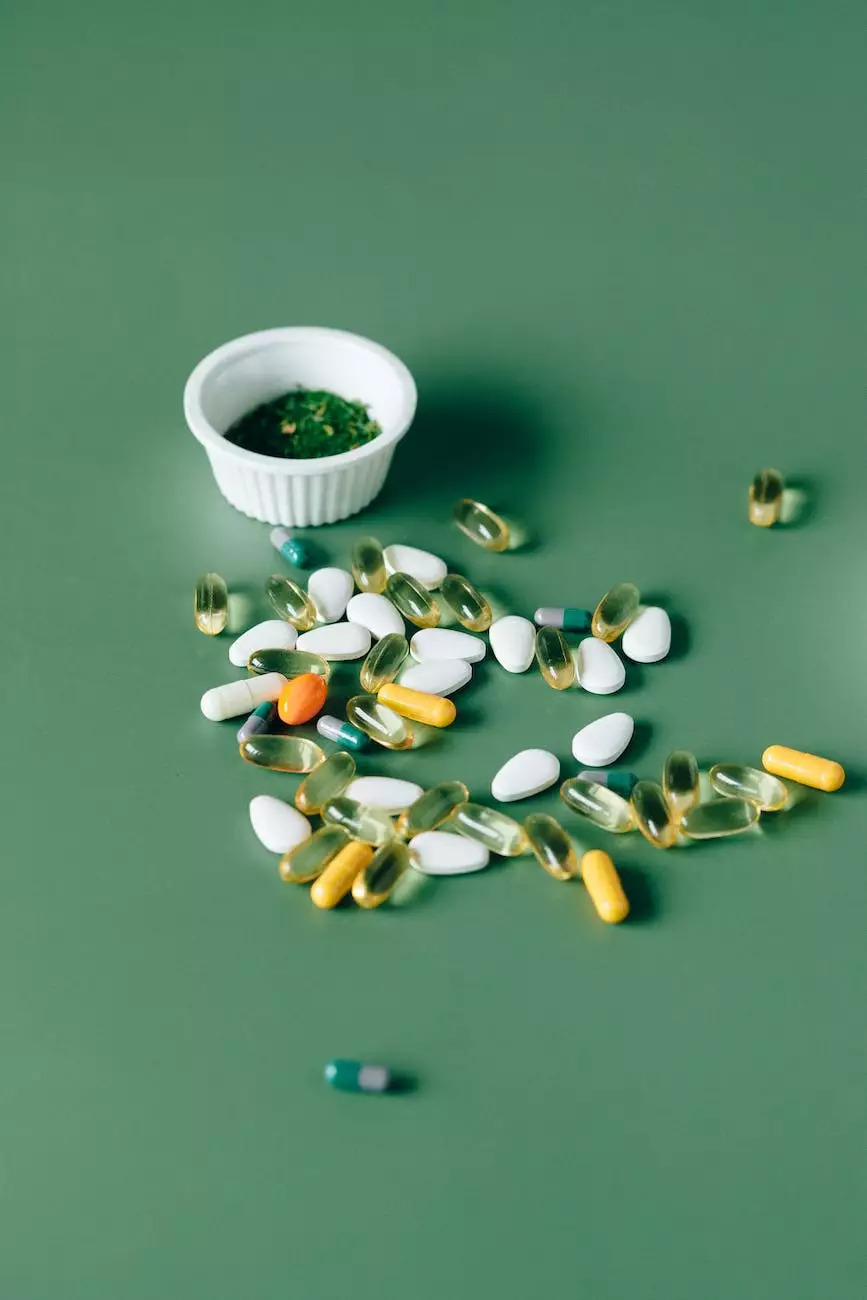Vitamin B & Strokes

Introduction
Welcome to Redding Integrative Medicine, your trusted destination for alternative and natural medicine solutions. In this article, we will delve into the topic of vitamin B and its role in stroke prevention and overall health.
Understanding Strokes
Strokes are a serious medical condition that occur when blood flow to the brain is disrupted, resulting in damage to brain cells. They can have long-lasting and often devastating effects on a person's health and quality of life. It is crucial to take proactive measures to prevent strokes and reduce the risk factors associated with them.
The Power of Vitamin B
Vitamin B plays a crucial role in maintaining a healthy nervous system, cardiovascular health, and brain function. This group of water-soluble vitamins includes thiamine (B1), riboflavin (B2), niacin (B3), pantothenic acid (B5), pyridoxine (B6), biotin (B7), folate (B9), and cobalamin (B12).
Thiamine (B1)
Thiamine aids in the conversion of carbohydrates into energy, which helps support brain function and prevent neurological conditions. It also enhances blood circulation, reducing the risk of blood clots that may cause strokes.
Riboflavin (B2)
As an antioxidant, riboflavin helps protect cells from oxidative stress, including those in the brain. It promotes healthy blood flow and supports the production of oxygen-carrying red blood cells, crucial for optimal brain function.
Niacin (B3)
Niacin helps maintain healthy cholesterol levels, reducing the risk of cardiovascular diseases like atherosclerosis, which can lead to strokes. It also aids in the dilation of blood vessels, ensuring proper blood flow to the brain.
Pantothenic Acid (B5)
Pantothenic acid is involved in the production of neurotransmitters and other essential molecules for brain function. It supports heart health by regulating cholesterol and triglyceride levels, thus reducing the risk of strokes caused by arterial blockages.
Pyridoxine (B6)
Pyridoxine plays a crucial role in neurotransmitter synthesis, including serotonin and dopamine, which are important for mood regulation and general well-being. It also helps prevent the buildup of homocysteine, an amino acid associated with an increased risk of stroke.
Biotin (B7)
Biotin supports metabolism and energy production, benefiting overall brain health. It also helps regulate blood sugar levels, reducing the risk of complications such as diabetes, which may increase the likelihood of strokes.
Folate (B9)
Folate is essential for DNA synthesis and repair, making it critical for cellular health and division. It helps reduce the risk of strokes by maintaining the integrity of blood vessels and supporting healthy red blood cell production.
Cobalamin (B12)
Cobalamin is involved in the production of myelin, a protective covering around nerves that supports their proper function. It also aids in the metabolism of homocysteine, reducing the risk of blood clots and strokes.
Preventing Strokes with Vitamin B
Incorporating vitamin B-rich foods into your diet can significantly contribute to stroke prevention. Some excellent sources of vitamin B include:
1. Whole Grains
Whole grains such as brown rice, oats, quinoa, and whole wheat bread are rich in B vitamins, providing essential nutrients for brain health and cardiovascular function.
2. Leafy Green Vegetables
Dark leafy greens like spinach, kale, and Swiss chard are excellent sources of folate and other beneficial B vitamins. Including them in your diet can help protect against strokes and support overall well-being.
3. Nuts and Seeds
Almonds, sunflower seeds, and flaxseeds are packed with vitamin B, healthy fats, and antioxidants. Snacking on these nutrient-dense foods can enhance brain health and reduce stroke risk.
4. Legumes and Beans
Beans and legumes like lentils, chickpeas, and black beans are rich in various B vitamins, fiber, and protein. They promote heart health and may lower the risk of strokes when consumed regularly.
5. Lean Meats and Fish
Poultry, lean meats, and fatty fish like salmon and trout are abundant sources of vitamin B12. Including these in your diet can support brain function and contribute to a well-rounded nutritional intake.
Redding Integrative Medicine - Your Partner in Holistic Health
At Redding Integrative Medicine, we understand the significance of a comprehensive approach to health and wellness. Our team of experienced practitioners specializes in alternative and natural medicine solutions aimed at optimizing your well-being.
Through personalized treatment plans, we integrate the power of vitamin B and other natural remedies to support your overall health while specifically addressing stroke prevention. Our holistic approach emphasizes the role of lifestyle modifications, nutritional support, and evidence-based therapies.
If you're seeking an alternative to conventional medicine and are interested in exploring the benefits of vitamin B and other natural remedies, we invite you to contact Redding Integrative Medicine today. Our dedicated team is here to guide you on your unique wellness journey, promoting a healthier and more vibrant life.
Disclaimer: The information provided in this article is for educational purposes only and should not be considered medical advice. Always consult with a qualified healthcare professional before making any dietary or lifestyle changes.




